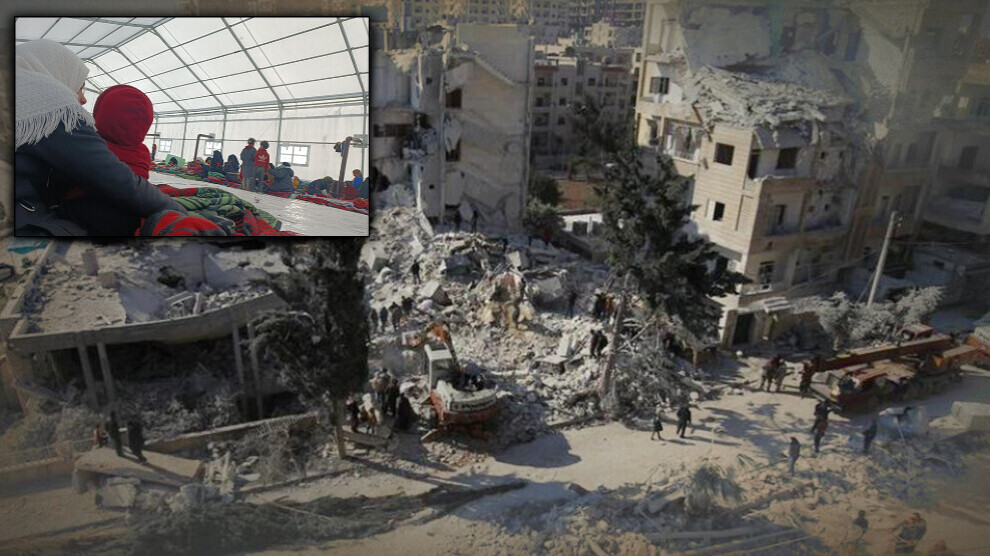Earthquake leaves many women alone
The Maraş earthquakes have left many women alone in Idlib. The women, who lost their children, parents and family members, have been suffering from earthquake trauma and the difficulties of being displaced.

HADEEL AL-OMAR
Idlib-The devastating earthquakes centered in Maraş cause extensive damage in Idlib, a city in North and East Syria. The women, who cannot enter their damaged houses, now live in IDPs camps while suffering from earthquake trauma.
‘I experience mental health problems’
28-year-old Rania El-Ehmed is from Sermede town of Idlib. She lost her two children in the earthquakes. “After the earthquakes, I began to experience mental health problems. Once I wanted to commit suicide when I was alone. I saw my children under the rubble. I have been experiencing mental health problems because I lost my children and I am a displaced woman. Women living in the camps cannot meet even their basic needs. People need tents now,” she told us.
‘I am alive now but what I am experiencing now is worse than death’
The earthquakes killed all family members of 24-year-old Huda El-Helaq in the Bisniye town of Idlib. Now, she lives with her uncle in a camp near the border between Syria and Turkey. “The earthquakes have killed and injured hundreds of people in our town. Witnessing what happened in my town is very painful for me. Our buildings collapsed and we were under rubble. The search and rescue team pulled me from the rubble alive after five hours. However, I lost my children, husband, parents and three siblings. I am alive now but what I am experiencing now is worse than death.”
‘Women need urgent physiological support’
Activist Ruaa El-Wafî emphasized that girls and women who lost their families as a result of the earthquake need urgent physiological support to cope with earthquake trauma. “All NGOs and women’s organizations should provide physiological support to women affected by the earthquakes. Most women have lost their relatives and they are now displaced. They do not know what to do. If they do not receive physiological support, the suicide rates may increase.”
